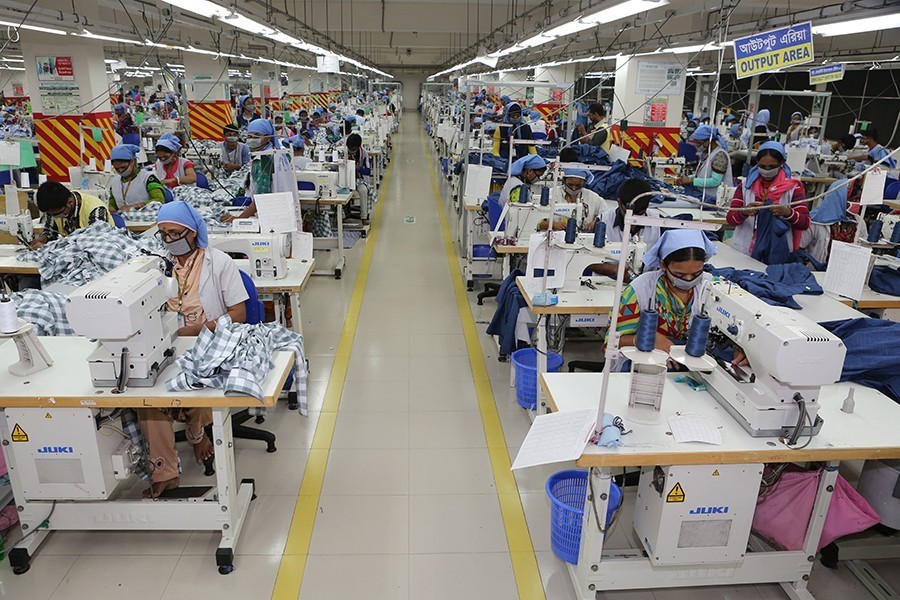
Published :
Updated :

The country's textile mills are reportedly in a difficult situation. While the Covid-induced decline in demand for fabrics from exporting garment factories has already taken a long toll on the entire textile industry, export of low-cost yarn allegedly at dumped prices from some competing countries, like Pakistan and India, is seen as a potential threat to its survival. Textile mills of the country that besides meeting domestic demand serve as the main backward link to manufacturing and exporting garments have been voicing their concern for sometime now over the very low priced export of yarn from India and Pakistan that they think not only adversely affects their production and marketing but also defies international trading practices under the WTO rules. The common perception is that yarn producing countries like India and Pakistan are exporting their stocked yarn to Bangladesh at dumping rates due to the pandemic.
It has been learnt that Bangladesh Textile Mills Association (BTMA) in a letter to the finance minister said that Bangladesh's competitor countries like India and Pakistan had taken different undue initiatives, including exporting yarns, fabrics and other textile raw materials at dumping prices to retain their market shares in the global market during the coronavirus pandemic. The letter said India sits on a stockpile of yarns as export remained almost halted due to coronavirus and now the country has started to export the item to Bangladesh at dumping prices. Considering the international prices of cotton and the cost of other components for production, the BTMA claimed that India was exporting its 40-count combed yarn at rates lower than the production cost. The letter further said Bangladeshi manufacturers were facing undue competition due to the below-cost import of yarn from India.
Bangladesh's primary textile sector, estimated to be worth $8 billion in investment, is working as a dynamic backward linkage industry and supplying 80 per cent of knit and 35 per cent of woven fabrics to the export-oriented readymade garment sector. According to industry insiders, due to the use of local inputs, the value of RMG export had increased to $35 billion from $26 billion in the last five years. However, lately, with the coronavirus hitting the industry hard, exports of garment and textile products are feared to slump by as low as 40 per cent to the European Union alone, the largest export market for Bangladesh. In such a situation, if the backward linkage factories, such as the textile mills, are adversely affected by dumped imports, this key feeding-industry would be fraught with untoward barriers to produce even on a limited scale.
What the textile millers now want the government to do is initiate anti-dumping duty on yarn import. It is a common practice globally to go for such actions as an ad-interim measure to protect the local industry against aggressive promotional policy of exporting countries. There is a definite merit in their demand as the concern expressed by the sector appears to hold ground. The authorities should look into the matter, especially the alleged below-cost pricing of yarn and do the needful.


 For all latest news, follow The Financial Express Google News channel.
For all latest news, follow The Financial Express Google News channel.